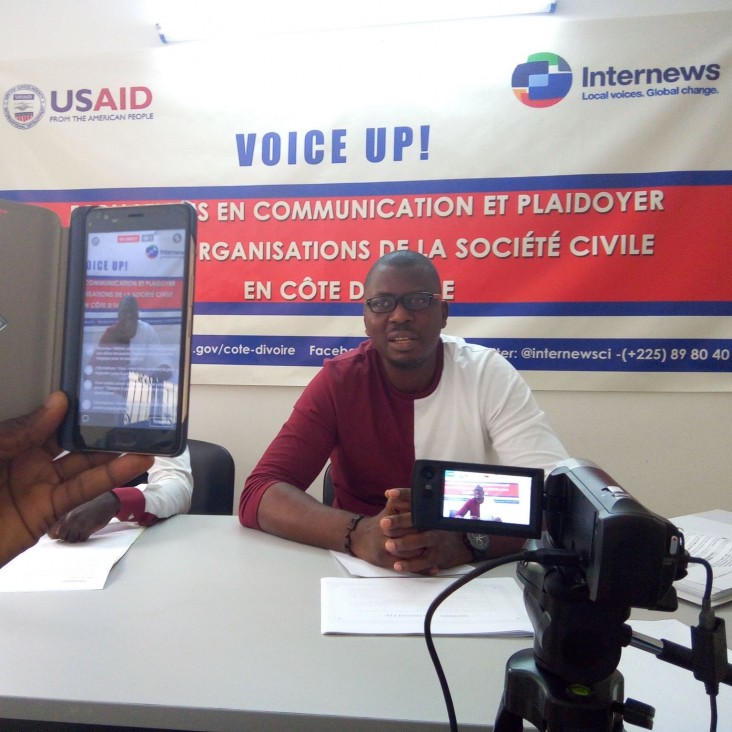Speeches Shim

June 2018 — Pierre Kassi Aboigny is an educator in a high school in the district of Plateau in Abidjan, Côte d’Ivoire. His commute on public transit shouldn’t really take very long.
However, Aboigny is wheelchair-bound and few buses are equipped with features that enable people with disabilities to board, such as lifts or ramps. The few buses that are wheelchair-accessible rarely stop for him or allow him to board during rush hour. Neither do taxis.
This is the sad reality for many people with disabilities.
Laurent Tiéhi, leader of the organization Espoir Handicap (Hope Handicap) is raising awareness of the challenges faced by citizens with disabilities so authorities can better respond to their needs.
At first, Tiéhi was frustrated by working with local media. After months of being refused, he was finally granted air time to explain difficulties encountered by people with disabilities. When the show aired, however, the TV reporter highlighted ramps recently installed on some buses. The interview was framed in such a way that viewers came away from the report thinking a problem had been solved, when the reality was the opposite.
Using Social Media to Promote a Cause
Tiéhi did not give up. He knew that behavior change was the way to improve the lives of people living with disabilities in Côte d’Ivoire, and the most effective way to do that was through mass media.
So Tiéhi enlisted in USAID’s Voice Up! project at the MediaLab in Abidjan and worked with members of Espoir Handicap to produce human interest stories. Stories, which included Aboigny’s challenges, were posted on Facebook and Twitter to raise public awareness.
In a country where around 5 million people have internet access, Aboigny’s story reached close to a quarter of a million people on Facebook, including Sidi Tiémoko Touré, minister of youth promotion, youth employment and civic service. The minister praised Tiéhi’s work and gave Espoir Handicap computers to keep up its mission.
The NGO now takes part in the youth ministry’s meetings on disability and is entrusted with organizing a panel to address the long wait for buses faced by people with disabilities.
“USAID’s Voice Up! project gave us the tools to better communicate. We're not about to stop!” said Tiéhi.
Since Espoir Handicap started to organize press conferences to share the stories, Ivorian media are eager to use stories and quotes from the NGO. This is an important step forward as it is still quite rare for Ivorian media to illustrate a news report using a human interest story.
In March 2018, Voice Up! published a social media guide to amplify voices of human rights defenders in Côte d'Ivoire.
Launched in 2016, the 18-month Voice Up! project worked to empower a community of activists and civil society organizations with the resources and media presence to advance meaningful advocacy campaigns promoting human rights, particularly for marginalized populations. Funded by USAID, the project was implemented by Internews.
LINKS
Follow us @USAIDAfrica, on Facebook, on Flickr![]()

Comment
Make a general inquiry or suggest an improvement.